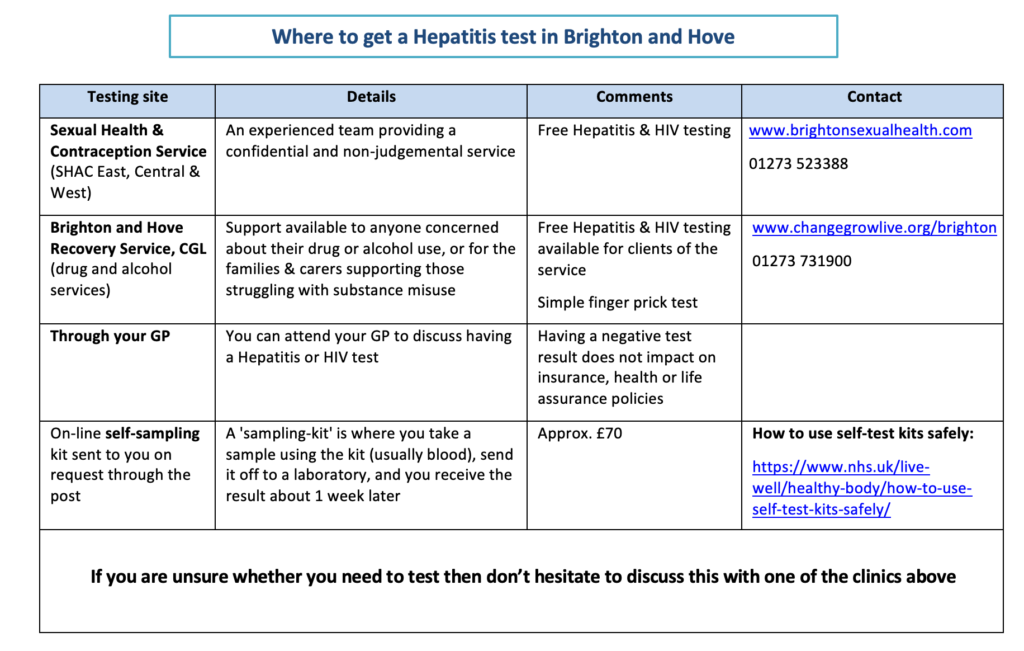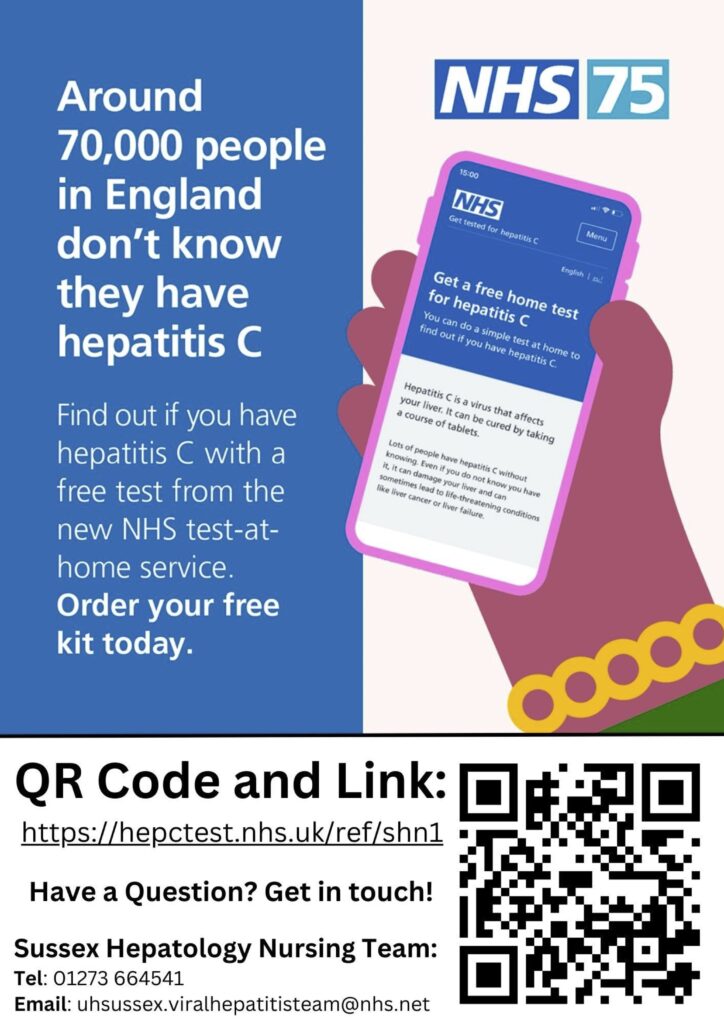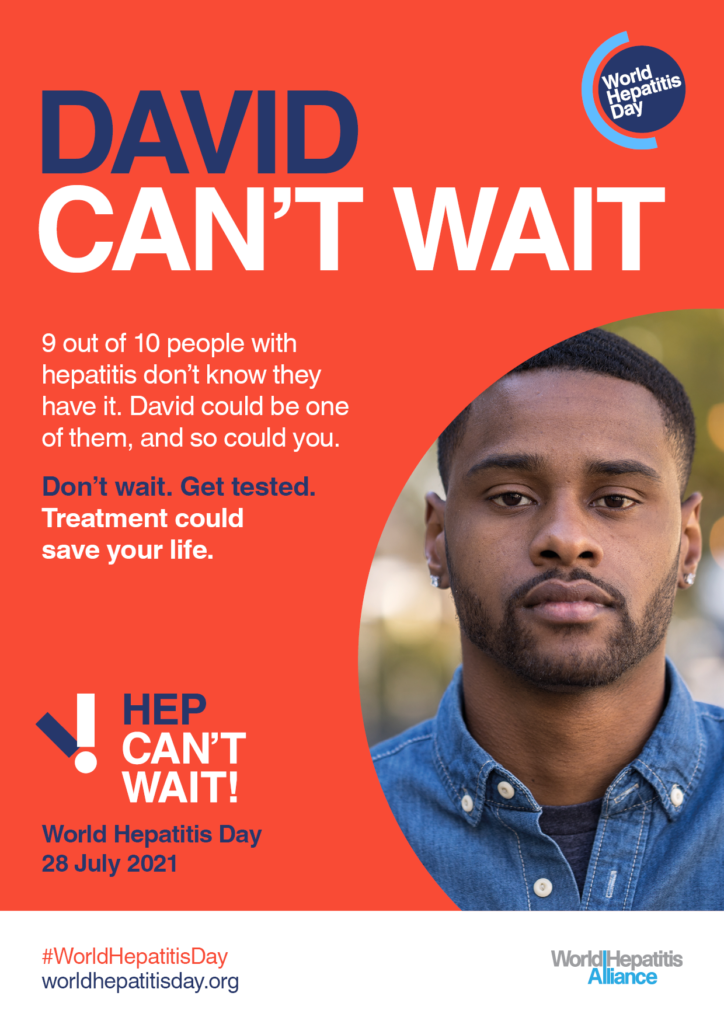What is viral hepatitis?
Hepatitis is an inflammation of the liver. The condition can be self-limiting or can progress to fibrosis (scarring), cirrhosis or liver cancer. Hepatitis can be caused by infections, toxic substances (e.g. alcohol, certain drugs), and autoimmune diseases, but viruses are the most common cause of hepatitis in the world.
There are 5 main hepatitis viruses, referred to as types A, B, C, D and E. These 5 types are of greatest concern because of the burden of illness and death they cause and the potential for outbreaks and epidemic spread. In particular, types B and C lead to chronic disease in hundreds of millions of people and, together, are the most common cause of liver cirrhosis and cancer.
At Brighton & Hove SHAC we offer free vaccinations for hepatitis A, and hepatitis B for the prevention of the sexual transmission of these viruses to eligible groups. There is currently no vaccination for hepatitis C.
This video from the World Hepatitis Alliance explains who is most at risk from Hepatitis.
Hepatitis C
Hepatitis C (HCV) is a blood borne virus which can be transmitted through sexual contact and the sharing of injecting equipment. Initial symptoms of HCV are similar to flu and include mild fever, joint and muscle pain, feeling and being sick and diarrhoea. This may then be followed by other symptoms such as jaundice (yellowing of the skin and eyes), itchy skin, passing very dark urine and pale stools. Only 15-25% of people clear HCV spontaneously, so most people will need treatment to avoid chronic infection and the complications of chronic liver disease, cirrhosis and cancer.
Using clean needles & other drug using equipment is recommended as the most effective way to prevent the transmission of HCV during ChemSex activities. We also suggest:
- Using a new condom for each sexual partner
- Using condoms for anal and vaginal sex
- Using latex gloves for fisting
- Putting condoms on sex toys & replacing after each use
- Avoiding the use of drugs as they increase blood flow and the risk of bleeding
PrEP does not protect against HCV or STIs. There is no vaccination against HCV. Treatments which cure HCV are available but must be taken every day for 8-12 weeks on average. Successful clearance of the virus does not provide immunity against re-infection with HCV.
Where to get a hepatitis test in Brighton & Hove
Sexual Health & Contraception Service (SHAC) offers a mix of on the day and pre-booked appointments at 3 sites across Brighton & Hove. You can book online or call 01273 523 388
The NHS offers a free home test for Hepatitis C. This test checks for antibodies – please note that it can take up to 3 months after getting hepatitis C before it can be detected by the test. If you are worried about more recent exposure to Hepatitis C, please contact our clinic 01273 523 388
Brighton & Hove Recovery Service (CGL) drug and alcohol services or call 01273 731 900

Further support
Find your local needle exchange
Advice on self-sampling kits



